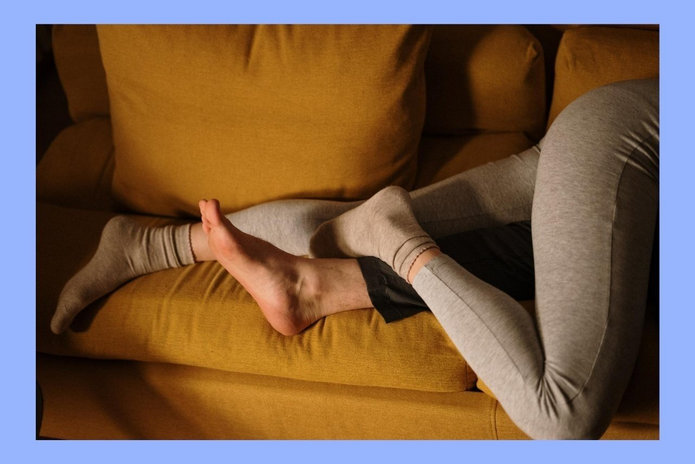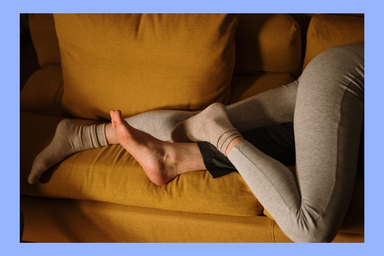One word. Four letters. They both start with the letter “L,” but the two words couldn’t be more different. At the same time, however, they’re incredibly difficult to distinguish between, especially when caught up in the heat of a new romance. Have any guesses on what we’re talking about here?
If you guessed love and lust, then you may have felt confused about either one (or both) while exploring a relationship with someone. Relationships are difficult to navigate, especially as a college student, so when the big “L” word is thrown around, things can become quite tricky. So, is that big L word love, or lust?
To help you achieve a clearer understanding, we spoke with relationship expert Dr. Patrick Wanis on the key differences between the two.
“The simple definition of love is wanting the best for the other person,” says Dr. Wanis. Lust, on the other hand, which Dr. Wanis also equates to “infatuation” and “passionate love,” is more about wanting what’s best for you.
“Infatuation is about what can you do for me, and love is about how much can I give to you,” Dr. Wanis explains. “One is all about taking, not necessarily receiving, and love is more about giving.”
Sound familiar? If you’re still unsure about what exactly you’re feeling for your partner, here are four huge signs that the scale is tipped to lust rather than love.
1. You don’t really know each other
Your chemistry is strong, and the feeling when you two meet is absolutely electric. You know you feel something for this person, but do you really even know who this person is, and vice versa? You might want to ask yourself these questions to really understand your feelings.
For example, you probably know some things about your partner, such as what they study in school, what their favorite bands are or what they enjoy when hooking up. However, if your communication doesn’t really crack that surface and dive deeper to a better understanding of each other, then lust may be the answer why.
“If you’re not sharing your personal experiences and problems, and that person has also set these boundaries, then you’re not in a relationship where you’re actually mutually supporting each other,” Dr. Wanis explains.
A major factor of being in a relationship that’s based on mutual love is being able to support one another, especially emotionally. If you don’t picture yourself ever opening up to this person and letting down those barriers, then the relationship doesn’t align with the foundations of love.

2. The relationship is purely physical
Whether you’re in a relationship of love or lust, it’s not uncommon for them both to start off very physical. After all, seeking out new partners begins by being attracted to one another physically. However, if your relationship is just physical, then it’s not necessarily love.
“Lust is a physical desire, it can be a chemical attraction,” says Dr. Wanis. “Lust, passionate love and infatuation aren’t necessarily bad, they’re only bad when that’s all there is between you. They’re only bad when they don’t transform and morph into another level.”
Again, the key here is that love is not purely physical. There’s nothing wrong with having a loving relationship that’s very physical, but it can be a problem when the relationship lacks substance in all other areas of love.
“There’s nothing wrong with experiencing passion because you need to have passion between you and your partner,” Dr. Wanis continues. “It’s okay to have lust between you and your partner, the challenge is if that’s all you have, then it’ll die just as quickly as it started.”
And while there’s nothing wrong with having a loving relationship that’s physical, there’s also no shame in exploring your desires and pursuing your feelings if lust, if that’s what both you and your partner want.
“I wouldn’t discourage two people from being in a relationship of lust, as long as they recognize that’s all it is,” Dr. Wanis explains. “If two people say, ‘look, I’m obsessed with you, I just want to have lots of great sex,’ and the other person agrees to it, fine.”
One of the biggest lessons Dr. Wanis teaches is to get clear about what you want, so in this case, it’s not only getting clear about what you want from this physical relationship, but it’s also recognizing if that’s all it is and will be.
3. Your relationship doesn’t evolve
Previously, Dr. Wanis mentions that in the case of a relationship that’s mistaken as love, it’s bad if the physical side of the relationship doesn’t evolve into something more. While a huge sign of lust is that your relationship relies on the physical attractiveness of it, another sign is that the relationship doesn’t eventually evolve into companionate love.
“Science shows that that intensity of lust, and passion and infatuation lasts from six months up to 30,” Dr. Wanis explains. “It usually is around 18 months—that’s the average. But it can end abruptly within six months, or last as long as 30 months.” Think of lust as a fire. Being infatuated with someone and pursuing a passionate love may start quickly just as a fire would, and the flames may seem bright when it’s fueled with passion, but they’ll soon fizzle out if that’s its only fuel.
“We can’t keep up that level of intensity past 30 months because you’re living a life,” says Dr. Wanis. “Once you commit to each other, then you’re going to have all these challenges together.”
Living your life throughout college and beyond means traveling, finding jobs, and maybe eventually marrying and having children (if that’s a part of your plan), so if you don’t see yourself potentially living through these challenges and making these commitments to your partner, then it’s probably not love.
4. You’re only internally focused
While these three signs can be huge indicators that you’re experiencing lust and not love, Dr. Wanis stresses the biggest difference between the two lies in your motivation and intent. Are you seeking to fill your own desires, or are you looking to give to someone else?
“The difference between lust and love is that lust, or infatuation, is internally focused,” says Dr. Wanis. “How do I feel when I’m with you? What can you do for me? How great can you make me feel?” If these are questions that you’re asking yourself when with your partner, you’re only focused on your own needs.
“[Lust is] very different to the external focus [of love] which is how much can I give to you? How much can I make you feel better?” Dr. Wanis explains. “Lust is primarily about satisfying your own desires, love is more about how much you can give to the other person. Infatuation is about receiving pleasure, love is about giving to the other person.”
Dr. Wanis continues that if your thought process is, “I need to get all my desires and needs met, and as long as they’re met, I don’t care about anything else,” then you’re experiencing lust. “And you don’t really care about the other person, as long as they give you what you need. That’s not love.”
If you’re still unsure, you can ask yourself more about how much you’re willing to really know and come to care about the person. “Is this just lust, or do you care about each other? Are you interested in what’s best for your partner? Are you interested in supporting and encouraging your partner, or are you just obsessed with making sure your partner gives you everything you need?” Dr. Wanis poses.
So, what’s the bottom line?
We’ve explored four major signs that you’re in lust and not love, and although it can be difficult to admit it to yourself, especially if you’re really passionate about your partner, it’s important not to confuse lust for love. Bottom line, if you’re still unsure, Dr. Wanis boils it all down to a science.
“Our deepest, hidden desire is not to be loved, but rather to love someone,” Dr. Wanis explains. “And that’s the difference between infatuation and love. Infatuation comes most likely from the biological perspective, which is procreation, versus love, which is about building bonds, creating an emotional connection and a community, a sense of belonging and a sense of secure attachment. They’re two different things.”
While it’s extremely difficult to distinguish between lust and love, especially in the earlier stages of the relationship, hopefully, these signs will point you in the right direction.

